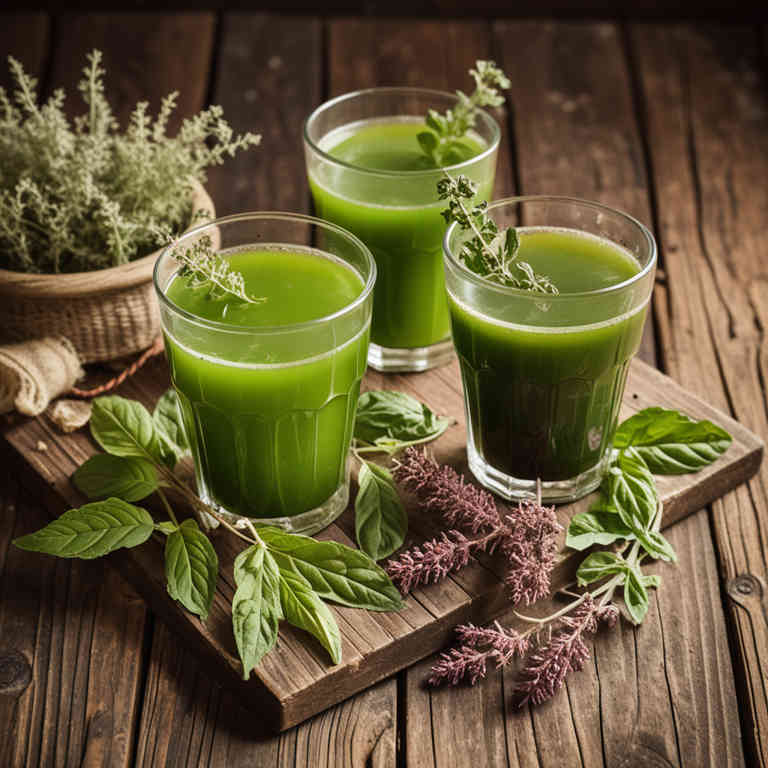Ocimum basilicum juice for medicinal use

Ocimum basilicum juice is a preparation made from the fresh leaves of the basil plant, commonly known as sweet basil.
It is extracted through cold pressing or juicing to preserve its active compounds. In herbalism, this juice is valued for its aromatic and therapeutic properties. It is often used to support digestive health, reduce stress, and alleviate symptoms of headaches and respiratory issues.
The juice is also believed to have antimicrobial and anti-inflammatory benefits when consumed or applied topically.
Uses
Ocimum basilicum juice has been used to treat a variety of ailments across different cultures for centuries.
Historically, it was valued in ancient Egypt, Greece, and India for its medicinal properties, often used to alleviate digestive issues and reduce inflammation. In traditional Ayurvedic and Chinese medicine, basil juice was believed to balance the body's energies and promote overall wellness. Modern research has supported some of these uses, showing potential benefits for reducing stress, improving digestion, and even possessing antimicrobial properties.
Today, it is commonly used in herbal remedies and as a natural supplement to support health and wellness.
Benefits
Ocimum basilicum juice has health benefits such as enhancing digestion, reducing stress, and boosting the immune system.
It contains essential oils and antioxidants that help fight inflammation and oxidative stress in the body. This preparation may also support respiratory health by alleviating symptoms of colds and allergies. Regular consumption of basil juice can promote skin health and aid in detoxification processes.
Additionally, it has been traditionally used to improve mental clarity and alleviate symptoms of anxiety.
Constituents
Ocimum basilicum juice active constituents include essential oils, flavonoids, phenolic acids, and rosmarinic acid.
These compounds contribute to its antioxidant, anti-inflammatory, and antimicrobial properties. The essential oils, such as eugenol and methyl chavicol, are responsible for its aromatic and therapeutic effects. Flavonoids and phenolic acids support immune function and may help reduce oxidative stress in the body.
Rosmarinic acid is known for its ability to combat free radicals and may aid in conditions like digestive disorders and skin health.
Preparation
To make Ocimum basilicum juice, start by selecting fresh basil leaves, preferably from a trusted source to ensure quality and potency.
Wash the leaves thoroughly under running water to remove any dirt or pesticides. Next, chop the leaves finely and place them in a blender or juicer. Squeeze or blend until a smooth liquid is obtained, then strain the mixture through a fine mesh sieve or cheesecloth to remove any pulp or residue.
The resulting juice can be consumed immediately or stored in a cool, dark place for a short period.
Side Effects
Ocimum basilicum juice may lead to gastrointestinal discomfort in some individuals, including nausea, vomiting, or diarrhea, especially when consumed in large quantities.
It can also cause allergic reactions in people sensitive to basil, manifesting as skin rashes, itching, or respiratory symptoms. Prolonged use may interfere with certain medications due to its potential to affect liver enzymes. In high doses, it might contribute to oxidative stress or interact with blood thinners, increasing the risk of bleeding.
It is advisable to consult a healthcare professional before using basil juice, particularly for those with pre-existing medical conditions or on medication.